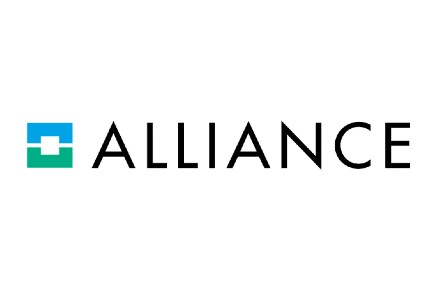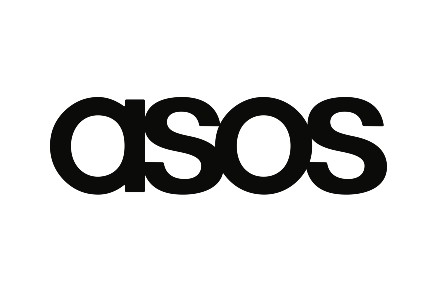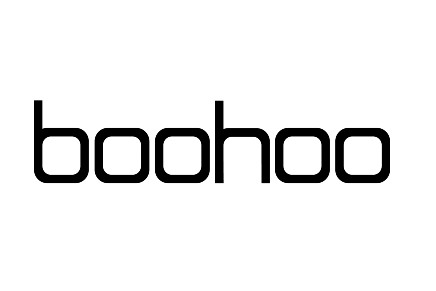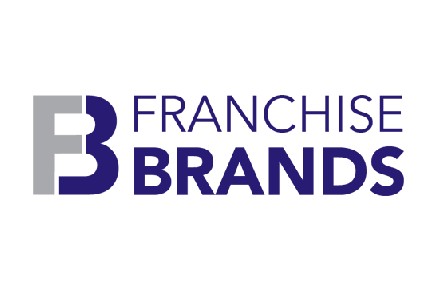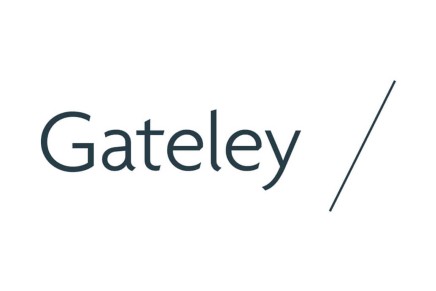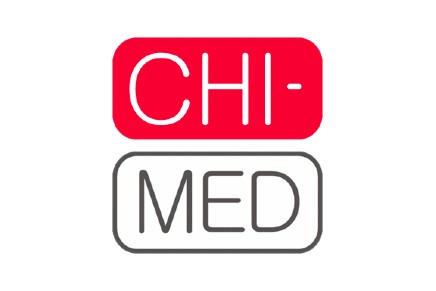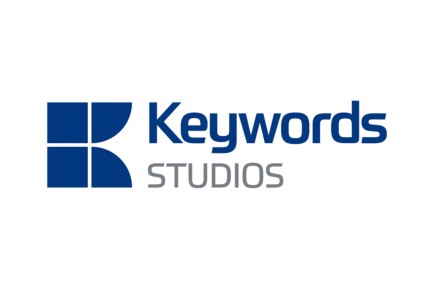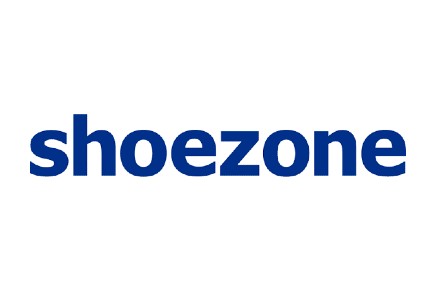Companies listed on the Alternative Investment Market (AIM) can be a helpful addition to an investment strategy, providing that you’ve done your research into the most appropriate choices for you.
Read on to discover analyst picks for the best AIM shares to buy in 2025, and the benefits and drawbacks of the market itself.
Also consider: Which UK tech shares to buy in 2025
Remember: this list is not a personal recommendation and does not constitute financial advice. Do not buy these investments solely based on what you read in this article.
1. Alliance Pharma
As its name suggests, Alliance Pharma is a healthcare and pharmaceutical business. While it is a UK company headquartered in Chippenham in Wiltshire, Alliance operates on an international scale, with nine offices located across western Europe, the US, and eastern Asia.
Alliance’s core business revolves around carefully marketing and managing consumer healthcare products, a strategy that appears to have been successful.
Indeed, the company’s growth can be fairly accurately tracked when looking at share price performance over the past two decades.
Shares traded for just 10 pence on 2 July 2002. Meanwhile, Alliance’s share price opened at 117 pence on 30 June 2022, showing just how far the business has come in a relatively short period of time.
Source: The Motley Fool
Best platforms to buy shares
- Interactive Investor – Low, flat fee of £9.99 per month
- Freetrade – Get a free share
- InvestEngine – 0% commission
2. ASOS
Online shopping is big business these days, and ASOS is one of the largest names in the clothing and cosmetics sector, offering men’s and women’s clothes, jewellery, and accessories.
ASOS experienced a particularly lucrative period in 2020, as lockdowns drove shoppers online rather than to stores.
As a result, the company saw rapid growth, with shares climbing from £10.60 on 3 April 2020 to £54.12 on 9 October 2020.
Unfortunately, despite acquiring brands including Topshop and Miss Selfridge in 2021, market performance has been slightly more uneven.
This has culminated in a share price of just 840 pence at market open on 30 June.
Source: IG
Best platforms to buy shares
- Interactive Investor – Low, flat fee of £9.99 per month
- Freetrade – Get a free share
- InvestEngine – 0% commission
3. boohoo
boohoo also made its fortune in the online clothing space, now offering 36,000 products to its target market of 16- to 30-year-olds.
Much like ASOS, lockdowns were helpful to boohoo, with the forced shift to online shopping ultimately boosting shares to an all-time high of 413 pence on 19 June 2020.
Of course, it’s worth noting that boohoo did come under fire for poor working conditions after an undercover investigation by the Sunday Times in 2020.
These revelations saw boohoo’s stock price tumble in just a few weeks from that all-time high down to 229 pence on 17 July.
Shares have continued to fall from this point, opening at just 53 pence on 30 June 2022.
Despite this, boohoo’s continued popularity with consumers may mean that this is simply an opportunity to pick up shares at a reasonable price.
Source: AIM watch
Best platforms to buy shares
- Interactive Investor – Low, flat fee of £9.99 per month
- Freetrade – Get a free share
- InvestEngine – 0% commission
4. Franchise Brands
Franchise Brands is a combined network of more than 600 franchisees working across nine brands.
The company’s clever focus on established brands has allowed it to grow at a rapid rate. These brands then from benefit support services and a great deal of sector expertise, management experience, and resources.
Growth for the company has been notable, acquiring two of its brands in the past 12 months – management software developer Azura Group in November 2021, and Filta Group Holdings in March 2022.
Annual profit has also grown significantly, rising from £2 million in 2017 to a reported £5 million last year.
Shares opened at 134 pence on 30 June 2022, so an investment in a growing business like this could be sensible.
Source: The Motley Fool
Best platforms to buy shares
- Interactive Investor – Low, flat fee of £9.99 per month
- Freetrade – Get a free share
- InvestEngine – 0% commission
5. Gateley
Franchise Brands is a combined network of more than 600 franchisees working across nine brands.
The company’s clever focus on established brands has allowed it to grow at a rapid rate. These brands then from benefit support services and a great deal of sector expertise, management experience, and resources.
Growth for the company has been notable, acquiring two of its brands in the past 12 months – management software developer Azura Group in November 2021, and Filta Group Holdings in March 2022.
Annual profit has also grown significantly, rising from £2 million in 2017 to a reported £5 million last year.
Shares opened at 134 pence on 30 June 2022, so an investment in a growing business like this could be sensible.
Source: The Motley Fool
Best platforms to buy shares
- Interactive Investor – Low, flat fee of £9.99 per month
- Freetrade – Get a free share
- InvestEngine – 0% commission
6. Hutchison China MediTech
The second pharmaceutical company on this list, Hutchison China MediTech (also known as “HUTCHMED”) is a biopharmaceutical business serving customers in China.
The company specialises in drugs and therapies for treating cancer and other immunological diseases.
As of 30 June 2022, HUTCHMED had a share price of 204 pence at market open, and a market cap of £1.76 billion.
Interestingly, as well as being listed on the AIM market, shares are also available on both the Stock Exchange of Hong Kong Limited and the Nasdaq Global Select Market in the US.
Source: IG
Best platforms to buy shares
- Interactive Investor – Low, flat fee of £9.99 per month
- Freetrade – Get a free share
- InvestEngine – 0% commission
7. Keyword Studios
Based in Ireland, Keyword Studios is a video games industry service provider, working out of more than 50 studios across 21 countries in four continents.
Keyword started out providing localisation services for business software, but transitioned into offering technical services to the videos game industry.
From art, marketing, and audio services, to game development and player support, Keyword has fingers in many digital pies.
Video gaming is a growing industry, and so an investment in a company that provides solutions integral to the sector’s continued development could be a winning choice.
Shares opened at £21.38 on 30 June 2022.
Source: AIM watch
Best platforms to buy shares
- Interactive Investor – Low, flat fee of £9.99 per month
- Freetrade – Get a free share
- InvestEngine – 0% commission
8. The Property Franchise Group
You may well have seen brands related to The Property Franchise Group (TFPG) in your area. Indeed, if you’ve ever seen the smiling sheep on a EweMove estate agent’s board then you’ll be familiar with at least one of their associated companies.
TFPG is a franchise group of real estate agents and managers, with brands including Hunters, Parkers, and of course EweMove.
Figures from the 2021 financial year all demonstrate the company’s growth, with 118% growth in revenue, £6.4 million in pre-tax profit, and EBITDA (earnings before interest, taxes, depreciation, and amortisation) of £10.4 million.
Expectations for 2022 include the company moving into a net cash position.
Shares opened at 292 pence on 30 June 2022, down from the all-time high of 365 pence on 14 April. Even so, long-term performance is not to be sniffed at in the current climate.
Source: interactive investor
Best platforms to buy shares
- Interactive Investor – Low, flat fee of £9.99 per month
- Freetrade – Get a free share
- InvestEngine – 0% commission
9. React Group
React Group is one of the most exciting companies on this list, as an innovative, specialist cleaning company.
From cleaning hotels, cruise ships, and private hospitals, to prisons and crime scenes, React Group firmly embodies the logic that while it may be a dirty job, someone has got to do it.
Long-term investors will likely feel somewhat let down by performance of the company throughout the last decade or so, as the share price has tumbled from upwards of 250 pence to a length period as a penny stock, where it still sits as of 30 June 2022.
React’s illiquidity means it’s not one for traders. But, with healthy projected earnings, promising balance sheets, steadily increasing revenue, and a truly unique service offering, the stock could potentially add some much-needed sheen to your portfolio.
Source: Moneyweek
Best platforms to buy shares
- Interactive Investor – Low, flat fee of £9.99 per month
- Freetrade – Get a free share
- InvestEngine – 0% commission
10. Shoe Zone
You might well know Shoe Zone for its unmissable blue and orange branding that has adorned high streets around the UK for over 40 years.
There are more than 400 Shoe Zone stores in the UK, and the company claims to sell 16.8 million pairs of shares each year at an average price of just £10.
The past 12 months have been successful for Shoe Zone so far. In fact, shares opened at 173 pence on 30 June, increasing from just 78 pence at the same time last year, marking the success of the company’s growth in the online space.
Analysts watching this stock at the start of the year have been proved right so far. Could Shoe Zone continue to grow steadily?
Source: Moneyweek
Best platforms to buy shares
- Interactive Investor – Low, flat fee of £9.99 per month
- Freetrade – Get a free share
- InvestEngine – 0% commission
- Open a share dealing account with a stock broker or investment platform. Make sure you choose a provider that offers access to stocks listed on the AIM. Read my list of the best investment apps here to help you decide which provider is most suitable for you.
- Deposit funds. Typically, you can use a credit or debit card to add money to your account. Some providers may also accept mobile payments, such as Apple Pay or Google Pay.
- Do your research. Look into the different AIM-listed companies that suit your investment strategy and goals.
- Place your trades. You’re ready to start buying and selling AIM shares. You can also consider trading CFDs of AIM stocks – but please note, this involves significant risk to your money and you may well get back less than you invest.
Read more about what AIM stocks are below, as well as a few notable benefits and drawbacks.
What exactly is an AIM stock?
An AIM stock is a company that’s listed on the Alternative Investment Market (AIM), which is the market from the London Stock Exchange made up exclusively of small and medium-sized growth companies.
The AIM market is sometimes considered the “junior market” of the London Stock Exchange, as these are typically smaller companies seeking investors that might be overlooked on a bigger exchange of blue-chip options.
Since its launch in 1995, there have been more than 3,800 companies listed on the AIM, with more than 800 currently on there today.
Such companies can then go on to become household names. For example, as you saw on the list above, clothing brands ASOS and boohoo are both AIM-listed companies.
Provided that you invest as part of a wider, balanced portfolio, AIM shares certainly have the potential to be a good buy for you.
However, they also come with specific downsides that could mean they’re inappropriate for you to buy in your personal circumstances.
Read more to find out some of the main benefits and drawbacks of investing AIM stocks.
Benefits of AIM investments
Here are some of the great benefits that investing in AIM shares can offer you.
Great potential for growth
The first and most obvious reason that many investors are interested in AIM stocks is their potential for greater growth on investment.
Small companies can grow exponentially in their early years as they rapidly expand. As a result, investing in AIM-listed companies can potentially provide better results than traditional markets.
Indeed, according to interactive investor, the AIM 100 index – a list of the top companies on the market – returned 45% in the five years to February 2020. That compares to 9% that the FTSE All-Share index returned over the same period.
So, by choosing AIM shares, you can potentially boost the returns you generate in your portfolio.
Your investments can be held in a Stocks and Shares ISA
A huge upside of AIM shares is that, since 2013, you’ve also been able to hold them in Stocks and Shares ISAs.
When you invest through an ISA, any investment returns or dividends paid are entirely free from Income Tax, Capital Gains Tax (CGT), and Dividend Tax.
As a result, this allows you to keep hold of all your returns without having to pay tax – although you will likely have to pay account fees and possibly commission on your trades to your ISA provider.
You can contribute money to your account up to the ISA allowance each tax year, which is £20,000 in 2022/23.
That means you can invest up to £20,000 in these companies while still benefiting from all the tax-efficiency that ISAs offer.
AIM shares and Inheritance Tax
One of the most notable benefits of AIM shares is that you may be able to pass them on to your family without having to pay Inheritance Tax (IHT), regardless of whether you hold them in an ISA or a General Investment Account (GIA).
This is because shares in AIM stocks or unlisted businesses can qualify for Business Relief (formerly Business Property Relief), allowing you to pass on these shares to your family free from IHT if you die while still holding them.
Provided that you’ve held your AIM shares for at least two years and it is a qualifying company, this means you may be able to reduce an IHT bill for your family on your death by holding part of your portfolio in AIM businesses.
Bear in mind that you only benefit from IHT relief on direct investments in AIM stocks. So, if you buy a fund containing AIM shares, you may have to pay IHT if you pass your investment to your beneficiaries on your death.
Drawbacks of AIM investments
Of course, as with any investment, there are drawbacks alongside the benefits. Read below for a few considerations you should take into account before you invest.
Higher risk
One important point to note is that AIM shares can present higher risk than companies listed on a major stock market like the London Stock Exchange.
While smaller companies have the potential to achieve greater growth, they also present a greater risk of not delivering returns, or even failing entirely.
This could present a risk to your money, as you may get back less than you invested, and could potentially even lose your entire investment.
Make sure you do thorough research in the fundamental statistics of any companies you’re considering before you buy.
Illiquidity of AIM shares
AIM stocks can also be highly illiquid investments.
“Liquidity” in investing refers to your ability to access the money you have tied up in the investment.
As not all investors are interested in AIM shares, you may find yourself stuck with a stock, unable to find a buyer for it.
This can be an issue for two reasons: firstly, it may make it difficult to realise gains in a stock that has performed well, preventing you from cashing in on your sensible investment.
Secondly, and perhaps more worryingly, it could stop you from shifting a stock that hasn’t performed as you’d hoped and is now presenting more of an issue to your portfolio as a whole.
You need to be satisfied that you may have to hold your shares over a long period if you’re unable to sell them when you want to.
Potentially less regulatory protection
One crucial difference that comes with investing in AIM shares is the regulatory protection you’re afforded as an investor.
The description of AIM regulation on the London Stock Exchange website reads: “A regulatory approach that is specifically tailored to the needs of growing companies.”
For the companies listed on the market, this is good news: less regulatory red tape means they can access capital investment and a wider pool of investors without needing to jump through the same hoops as larger companies on traditional markets.
However, this has also made AIM the subject of some key investment scandals. Indeed, the Langbar International scandal involved a so-called “cash shell” floating on the market to defraud investors of an estimated £100 million or more.
Protections have thankfully since been tightened, and instances like this one are incredibly rare, but issues can still occur.
Indeed, bakery chain Patisserie Valerie was an AIM stock but had its shares suspended in October 2018 after irregularities in its accounts, no doubt seeing many investors lose value on their investments.
Be aware that AIM stocks can come with this additional burden.
If you’re unsure whether an investment in an AIM-listed company is suitable for you, then you may want to consider taking personal advice from a professional financial advisor or planner.
A financial expert can take a look at your entire situation and help you to make decisions with your money that are most suitable for you.
You can use the tool on our website to search for a local advisor near you.
Can I buy shares on AIM?
Are AIM shares high risk?
Please note
The value of your investments (and any income from them) can go down as well as up and you may not get back the full amount you invested. Past performance is not a reliable indicator of future performance. Investments should be considered over the longer term and should fit in with your overall attitude to risk and financial circumstances.
CFDs are complex financial instruments and more than half of retail investor accounts lose money when trading CFDs. Please make sure that you know these risks before you start trading and that you’re aware there’s a high chance of losing money rapidly on your investment.

